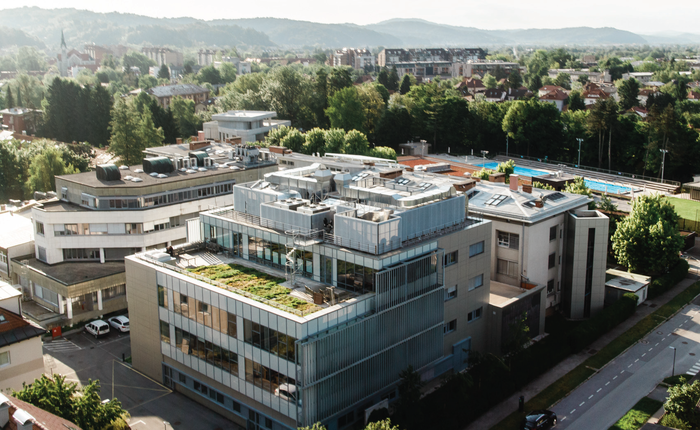
The National Institute of Chemistry in Ljubljana, Slovenia, is the country's oldest and second largest research institution, employing nearly 400 people, with three-quarters of them engaged in research. The institute focuses on applied material and life sciences research, biotechnology, chemical engineering, structural, theoretical and analytical chemistry, and environmental protection. As a result, the Institute's work is closely related to the needs of the domestic and international pharmaceutical, chemical, automotive, and nanobiotechnology industries.
International team, mobility and capacity building
The National Institute of Chemistry is especially proud of its international research team, which includes 30 researchers from various EU Member States and another 30 from countries outside of the EU.
Olivera, from Serbia, is one of the Institute's talented international researchers. She is a PhD student and a member of the Modern Battery Systems group. She spends most of her time working on rechargeable organic multivalent metal-ion batteries (MMIBs), an innovative technology that could supply an alternative for large-scale energy storage applications. Olivera and her team are working to better understand these systems and support their market adoption.
Olivera emphasises how important international mobility has been in her career, which was made possible by two EU policy instruments. She was able to travel around Europe and set up collaborations with many academic and non-academic partners working in her field thanks to the Polystorage European Training Network, a Horizon Europe-funded project. In addition, she was able to collaborate with experts from various fields both in Slovenia and abroad through the Marie Curie Network.
Background
Horizon Europe, with a budget of €95.5 billion, is the primary EU funding programme for research and innovation. Horizon Europe funds research that increases the EU's innovative potential, promotes competitiveness and growth, and aids in combating climate change and achieving the Sustainable Development Goals. The Marie Skłodowska-Curie Actions (MSCA), which are part of Horizon Europe, are the European Union's flagship funding programme for doctoral education and postdoctoral training of researchers. The MSCA promotes excellence in collaborations for research and innovation, knowledge transfer, methodologies and content, as well as training, supervision, and career guidance. The MSCA also encourages researchers to move between countries, sectors, and disciplines to gain new knowledge, skills, and competencies.
- Project locations
- Slovenia
